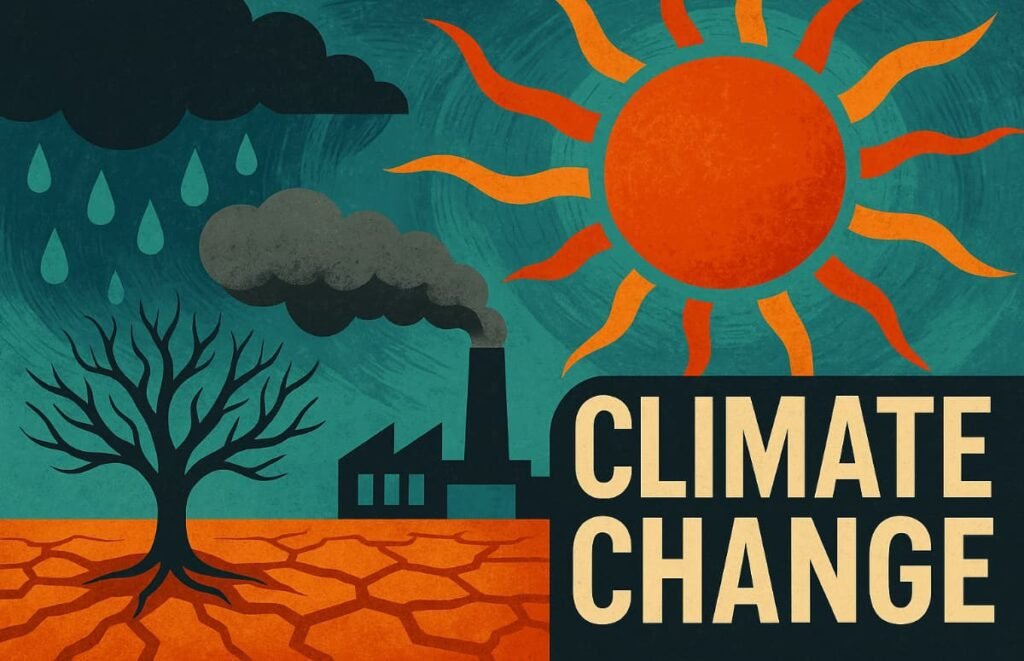Climate Change Paragraph: 200 & 400 Words

Climate Change Paragraph: 200 Word
Introduction
Climate change is no longer a distant threat it is a current global crisis. Rising temperatures, melting ice caps, and extreme weather events are clear signs that our planet is changing rapidly.
What Is Climate Change?
Climate change refers to long-term alterations in temperature, precipitation, and other atmospheric conditions. These shifts are largely driven by human activities, particularly the burning of fossil fuels.
Impacts Across the Globe
From coastal flooding to prolonged droughts, the effects of climate change are devastating lives and economies. Vulnerable communities suffer the most, facing food insecurity, migration, and loss of biodiversity.
Despite the scale of the problem, collective action can still reverse many effects of climate breakdown and protect the Earth.
Paragraph: 400 Word
Introduction
Climate change is the defining environmental challenge of our time. It affects every continent, every ecosystem, and every community. What we do now will shape the future of our planet.
The Science Behind Climate Change
Greenhouse gases like carbon dioxide and methane trap heat in the atmosphere. Since the Industrial Revolution, their levels have surged due to deforestation, transportation, and industrialization. This warming leads to rising sea levels and unstable climate patterns.
Climate Change and Human Life
The consequences are not limited to nature. Climate change threatens public health, agriculture, and infrastructure. From deadly heatwaves to massive wildfires, no country is immune to its reach.
Policy and Action
Countries around the world have signed agreements like the Paris Accord, committing to limit global warming to 1.5°C. Yet, emissions continue to rise. Without urgent reductions, Climate breakdown will only accelerate.
Hope for the Future
Renewable energy, sustainable agriculture, and conscious consumer choices are ways to fight back. Youth-led movements, scientific innovation, and international cooperation offer hope that we can turn the tide.
In conclusion, it is not just an environmental issue it’s a humanitarian and moral one. The time to act is now.